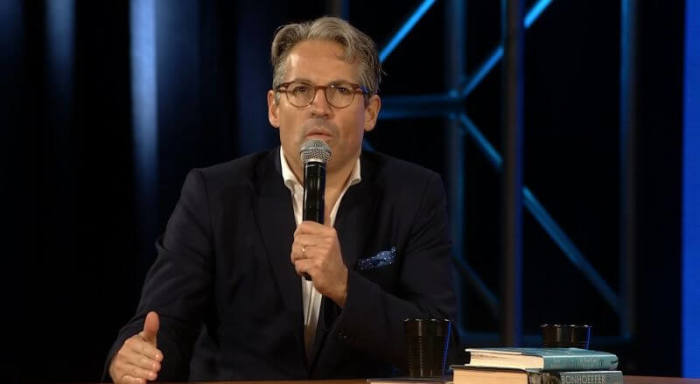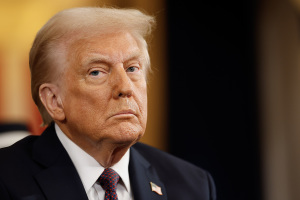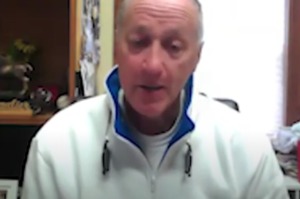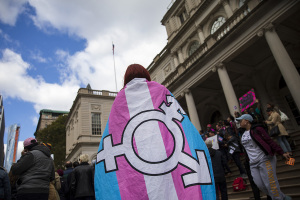Eric Metaxas' radio show banned from YouTube for violating 'misinformation,' 'integrity' policies

Conservative Christian commentator and bestselling author Eric Metaxas' radio show was terminated from YouTube this week after receiving multiple strikes for violating the video platform’s guidelines due to videos on vaccine passports and the 2020 election.
“In regards to YouTube terminating my radio show channel, it’s been clear to us for some time that they wanted to wipe us out,” Metaxas said in a Facebook post.
A YouTube spokesperson told The Christian Post the show's channel was terminated under the “longstanding three strikes system.”
“Specifically, we removed content that violated our policies on COVID-19 medical misinformation and presidential election integrity,” a YouTube spokesperson said in the email.
Although the radio show's channel was removed from Youtube, Metaxas' other YouTube channel sharing his media appearances is still active.
In his statement, Metaxas said that he and his team had done their "very best to comply" with what he called "creepy Marxist ‘community standards." Still, the administrators of the Google-owned video platform "seem to have been digging into some of our older videos to find things they could use against us."
“As their uncredited hero Stalin infamously said, ‘Show me the man and I will find you the crime,'" Metaxas wrote. "The loss to us financially is devastating, but when you are speaking truth at a time such as this you cannot be daunted by such things. None of my heroes ever were and by God’s grace I never will be.”
Metaxas, who authored If You Can Keep It and biographies on Dietrich Bonhoeffer, William Wilberforce and Martin Luther, vowed that the "The Eric Metaxas Show" "will not be silenced."
The last strike for the radio show was about two months ago over an episode with controversial feminist author Naomi Wolf warning about the dangers of "vaccine passports" and a "social credit system." Wolf, who wrote The End Of America in 2007, has been a critic of COVID-19 lockdowns.
YouTube removed the video for violating “medical misinformation policy.”
The email informing them that the video was removed explained, “We know that this might be disappointing, but it's important to us that YouTube is a safe place for all. If content breaks our rules, we remove it.”
Some of the other strikes were from posts related to the 2020 election.
The first video removed was an interview called “Mike Lindell On What He Shared With The President & What Is Ultimately At Stake For Our Country" with the Trump-supporting founder of My Pillow.
The email detailing this video’s removal, which resulted in an initial warning, said the content “advances false claims that widespread fraud, errors, or glitches changed the outcome of the U.S. 2020 presidential election is not allowed on YouTube.”
Other videos removed included an interview with former Republican Congresswoman Michele Bachmann sharing her eyewitness account of the events of Jan. 6, a discussion on a "new era in America" and its "cultural, political and spiritual future," as well as a video with John Zmirak discussing the censorship of the "violence-supporting left."
Though the radio show will take a financial hit since YouTube was a significant revenue stream, its content is now available on Rumble, an alternative video-sharing platform.
“In fact this grotesque attack on free speech emboldens us dramatically in calling out Maoist and Soviet-style tactics for what they are, an expression of deepest fear that the truth can never be silenced," Metaxas wrote in his post. "Because it cannot.”
Chris Himes, a social and video producer for the show, called the nature of the situation "oppressive." Himes told CP the situation seemed "more punitive and subjective than rational.”
“Why did it take two months to issue the violation? #hachetjob We were a few days from one of the warnings expiring," he said. "So they whacked us.”
He contends that the situation reminds him of the climate of places like Cuba, the country his mom’s family fled.
“It all felt very subjective, and in a couple instances, we would get a strike based on something that was three or four months old, so that led us to believe they were just looking for things that bothered them in our archives ...,” Himes said.
“It feels very oppressive and reminds me of the climate that people in places like communist Cuba find themselves where they’re afraid to even utter the name of Castro out loud,” Himes shared. “… They’re so spooked about what they can’t say. They’re afraid to use certain words for fear of retribution.”
He said the community guidelines and policy seemed to change after the 2020 election.
“It feels that there is room for the next president to step in and break up these tech monopolies …,” Himes said. “Because things have gone too far, and the pendulum certainly needs to swing back the other way.”
Earlier this year, former President Donald Trump was banned from YouTube and all the leading social media apps after the Jan. 6 Capitol riots.
Florida Gov. Ron DeSantis signed legislation last week, which goes into effect on July 1, that will punish “totalitarian” Big Tech censorship and protect the ability of Floridians to participate freely in online platforms.
Emily Wood is a reporter for The Christian Post. She can be reached at: emily.wood@christianpost.com





























